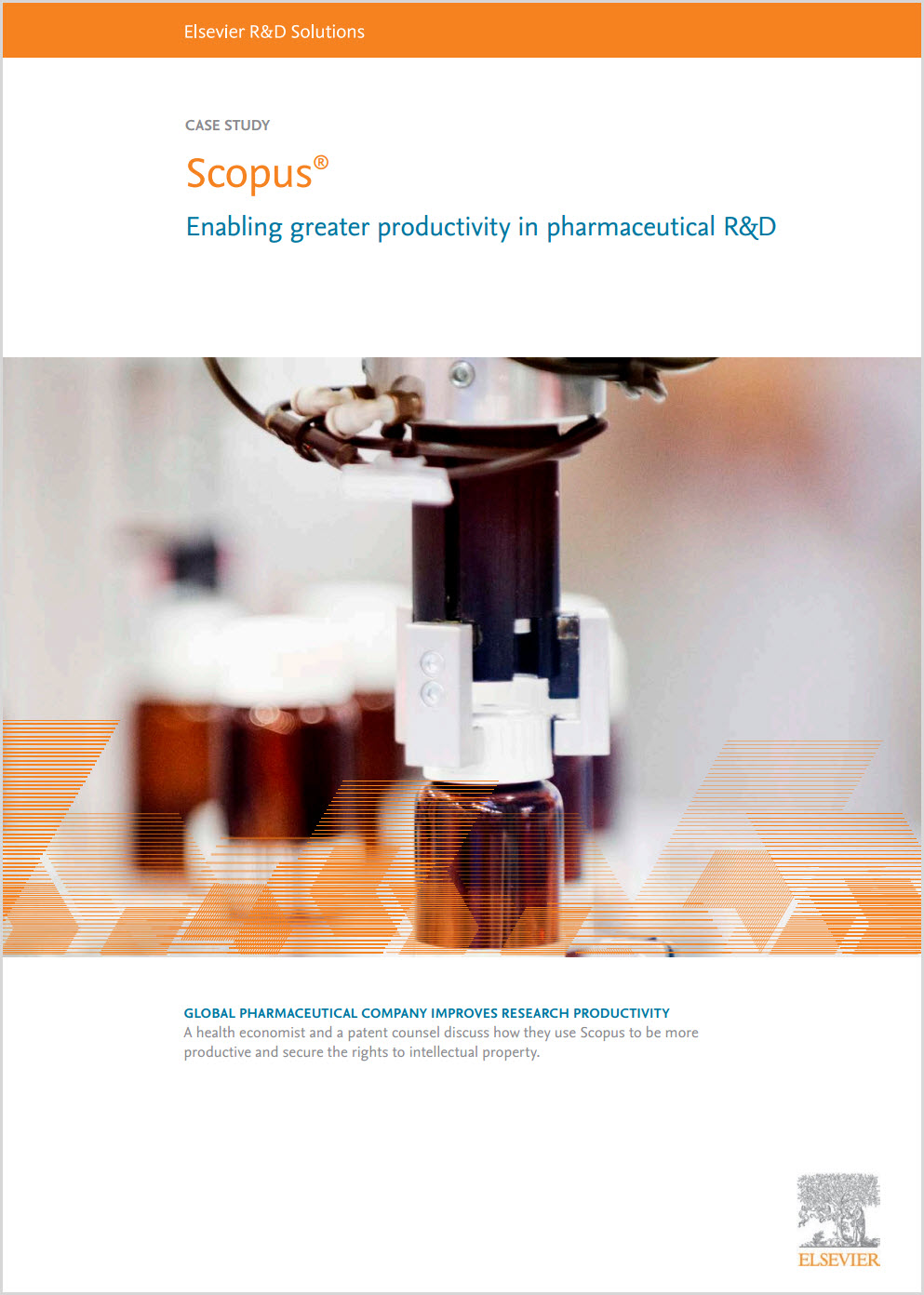Case Study: Improved productivity in pharmaceutical R&D
The challenges in the pharma industry are well known. A low rate of NCE (new chemical entities) being brought to market; the expensive, timely clinical trial; and stringent regulatory procedures combined put pharma under pressure to increase productivity and carefully select and fulfil unmet medical needs.
In this case study, a health economist and a patent counsel share their thoughts on why Scopus plays an integral role in their strategic marketing and product defense roles. The health economist works in the global product strategy department, looking at pipeline products and benchmarking them against products already in the field, studying new investigations on existing products, and evaluating pharmacoeconomic studies and quality of life issues. Using Scopus, he is able to quickly gain an overview on the relevant therapeutic areas – using the information he finds as a springboard into the health economics analysis to make informed strategic recommendations. He views the citation trail as a means to see how a topic is developing – something that is particularly important in health economics.
The patent counsel works in the IP (intellectual property department). She drafts the patent requests, conducts the patent searches and defends denied patent applications with a view to resubmission. This process requires prior patents and scientific literature search to demonstrate whether the potential drug is novel and has an industrial application – the combination of using the Scopus patent and literature searches saves her critical time.
To learn more, download and read the full story here.


